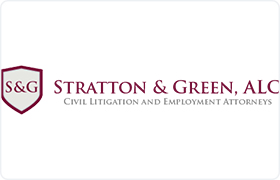Pioneertown Bankruptcy & Debt Lawyer, California
Sponsored Law Firm
-
 x
x

Click For More Info:
-
Stratton & Green, ALC
3703 Camino Del Rio S Suite 100B San Diego, CA 92108» view mapBankruptcy & Debt Law Exceptional Advocates.
Stratton & Green is proud to serve as a modern advocate, in that it takes an innovative approach by not only litigating cases through trial but whenever possible.
800-803-3091
Andrew M. Rosenfeld
✓ VERIFIEDLawsuit & Dispute, Criminal, Divorce & Family Law, Bankruptcy & Debt, Federal Appellate Practice
Jenny Doling
Litigation, International Tax, Business, Bankruptcy, Bankruptcy & Debt
Status: In Good Standing Licensed: 24 Years
Timothy Bryan Liebaert
Construction, Wills & Probate, Business, Consumer Bankruptcy
Status: In Good Standing
Eric Joseph Guinan
Civil Rights, Contract, Credit & Debt, Personal Injury
Status: In Good Standing Licensed: 30 Years
Lola C. Lopez
Divorce & Family Law, Real Estate, Bankruptcy, Divorce, Child Custody
Status: In Good Standing Licensed: 18 Years
FREE CONSULTATION
CONTACTAnnette Louise Isaac
Estate Planning, Family Law, Business & Trade, Commercial Bankruptcy
Status: In Good Standing Licensed: 24 Years
Harold Christopher Heritage
Wills, Trusts, Family Law, Bankruptcy
Status: In Good Standing Licensed: 27 Years
Joseph Anthony Roman
Employee Rights, Corporate, Credit & Debt
Status: In Good Standing Licensed: 44 Years
Philip Saul Klatchko
Estate Planning, Bankruptcy, Construction, Contract, Elder Law
Status: In Good Standing Licensed: 50 Years
 Sabrina Green San Diego, CA
Sabrina Green San Diego, CA Practice AreasExpertise
Practice AreasExpertise

